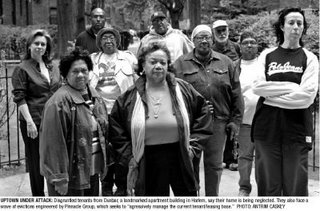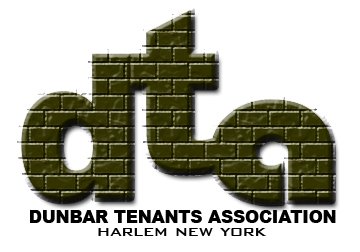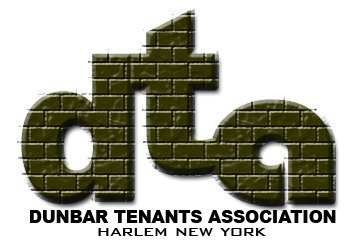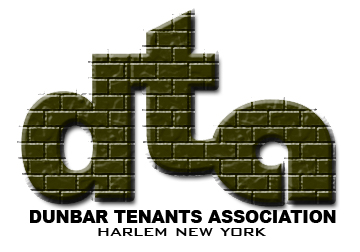
By Heather Haddon From the May 10, 2006 issue
“I am full of stress,” said Hernandez, who is facing the twin burdens of a lawsuit and difficulty walking. “When will Pinnacle’s abuses stop?”
Thousands of residents citywide are asking that same question. The Pinnacle Group andits owner, Joel Saul Wiener, have unleashed an arsenal of threatening letters, eviction notices, and lawsuits against tenants. Wiener’s goal, according to tenants and advocates, is to push out long-term residents,use renovations and suspicious accounting toraise rents beyond stabilization limits, and then turn them into condos.“Pinnacle is a monster,” said Luis Tejada of the Mirabal Sisters, a Harlem organization supporting the growing ranks of angry tenants.
BANKING ON VACANCY DECONTROLUnscrupulous landlords have always thrived in New York. But Pinnacle is unique in itsscale and financing through the Praedium Group, a real estate investment trust (REIT)on steroids. REITs have been around for decades, but only in the late 1990s did big banks get in the action – just as New York State began allowing apartments with rents exceeding $2,000 to exit stabilization programs.
Thousands of residents citywide are asking that same question. The Pinnacle Group andits owner, Joel Saul Wiener, have unleashed an arsenal of threatening letters, eviction notices, and lawsuits against tenants. Wiener’s goal, according to tenants and advocates, is to push out long-term residents,use renovations and suspicious accounting toraise rents beyond stabilization limits, and then turn them into condos.“Pinnacle is a monster,” said Luis Tejada of the Mirabal Sisters, a Harlem organization supporting the growing ranks of angry tenants.
BANKING ON VACANCY DECONTROLUnscrupulous landlords have always thrived in New York. But Pinnacle is unique in itsscale and financing through the Praedium Group, a real estate investment trust (REIT)on steroids. REITs have been around for decades, but only in the late 1990s did big banks get in the action – just as New York State began allowing apartments with rents exceeding $2,000 to exit stabilization programs.
A handful of banks suddenly saw Harlem and the Bronx in a whole new light. “It’s viewed as a decent investment,” said Jerry Salama, a NYU professor and real estate expert. “The large investment banks are…going to Harlem and buying rundown multifamily homes and fixing them up.”
Credit Suisse First Boston, one of the country’s biggest investment banks, establishedPraedium in the nineties. One Praedium REIT, Praedium Fund V, pooled $465 millionfrom pensions, endowments and foundations to leverage $1.7 billion in acquisitions, according to financial industry reports. The bulk of that went to buy New York apartment buildings. A Praedium spokesperson said they do not comment on their individual holdings. But Kim Powell, a Pinnacle resident from Harlem, spoke candidly about Praedium, “They are not seeing that within their real estate work, there are habitants and human lives.”
Credit Suisse First Boston, one of the country’s biggest investment banks, establishedPraedium in the nineties. One Praedium REIT, Praedium Fund V, pooled $465 millionfrom pensions, endowments and foundations to leverage $1.7 billion in acquisitions, according to financial industry reports. The bulk of that went to buy New York apartment buildings. A Praedium spokesperson said they do not comment on their individual holdings. But Kim Powell, a Pinnacle resident from Harlem, spoke candidly about Praedium, “They are not seeing that within their real estate work, there are habitants and human lives.”
Some housing experts are also wary about Praedium and its ilk. “Enron predicted growth in a certain way, and a lot of people lost money,” said Abbott Gorin, an attorney with the Department of Housing Preservation and Development who has sued Pinnacle for code violations. “Renegade actors ruin the investment for everyone. They accelerate a crash.” Praedium is especially brash. As its website states, the company seeks “properties that are ‘broken’ and can in turn be fixed and then sold upon stabilization.” What constitutes a broken property? Not one with faulty boilers, but those that fail to “aggressively manage the current tenant/leasing base.” To fix that, it recommends “strategic capital improvements and proactive leasing.”
MEET JOEL WIENERWho better to carry out that prescription than Joel Wiener? He comes from an oldschool Brooklyn real estate family. Two children from the third generation, Arthur and Joel, carry the torch. Their father, Paul Wiener, gave ownership of a Riverdale co-op to his children. One of the tenants, a woman who asked for anonymity because she is suing the Wieners, sought help when her roof collapsed in 1984. The damage was extensive, but the Wieners didn’t seem to care. “I could squeeze water out of my insulation. Paul said ‘I don’t see any water,’” the tenant said.
Joel has a reputation for being ruthless among many tenants. “He’s so evil. It’s just amazing,” said Laura Spalter, a Riverdale resident who fought the Wieners in the late seventies. Spalter and other residents managed to wrest control of their property, but only after extensive court proceedings. Wiener has done well for himself. He has a fancy car and high-end office, along with a luxury home. He is flattering and laudatory to some, a snide hothead to others, according to those who have tangled with him. Spalter found that Wiener’s own lawyers often couldn’t stop his rants.
Praedium, however, has rewarded Wiener for his behavior. Beginning in 2002, they financed Pinnacle’s acquisition of entire real estate portfolios, including those owned by veteran slumlord Baruch Singer. That deal – an off-market transaction of almost 3,000 northern Manhattan apartments for $500 million – is rumored to be one of the largest multi-family building deals in city history. Even in the hyperactive world of city real estate, Pinnacle’s sprawling web has grown enormously. Wiener owns thousands of apartments in Brooklyn, the Bronx and Manhattan.
His company controls entire swaths of Harlem, Sugar Hill and Washington Heights, along with significant chunks of the Bronx, Upper West Side, Flatbush and Crown Heights. In these areas, Pinnacle targets rent-stabilized properties that are a haven for lowincome residents – from Hispanic families to starving artists.
His company controls entire swaths of Harlem, Sugar Hill and Washington Heights, along with significant chunks of the Bronx, Upper West Side, Flatbush and Crown Heights. In these areas, Pinnacle targets rent-stabilized properties that are a haven for lowincome residents – from Hispanic families to starving artists.
WIENER’S ARMYWiener runs his operation with military resolve. He maintains a cadre of loyalists, and fires outsiders. Among Pinnacle’s first purchases were former Mitchell-Lama buildings in the Bronx in 2002. Pinnacle proceeded to fire much of the staff within days, according to the Daily News. That year, the city passed a law barring new owners from firing existing staff within 90 days. Wiener has broken the rule since.
Pinnacle has fired more than 200 building supers, as stated in a class action lawsuit filed in federal court last fall. Some were forcibly removed. “[A property manger] threw a Brooklyn super down the stairs,” said Luis Tejada, who spearheaded the suit with a labor law firm. “He walked away and told someone else to call an ambulance.” Most of the supers had decades of management experience. Many were replaced with inexperienced workers from Yugoslavia, according to the suit.
Pinnacle has fired more than 200 building supers, as stated in a class action lawsuit filed in federal court last fall. Some were forcibly removed. “[A property manger] threw a Brooklyn super down the stairs,” said Luis Tejada, who spearheaded the suit with a labor law firm. “He walked away and told someone else to call an ambulance.” Most of the supers had decades of management experience. Many were replaced with inexperienced workers from Yugoslavia, according to the suit.
Frank Marino of the Marino Organization, a PR firm hired by Pinnacle, said that while staffing is done on a “building by building basis,” the net result is positive. “If you look at the number of staff working in the properties, you would find an increase,” he said. Perhaps, but the property managers don’t seem very attentive. “They don’t even get out of their cars,” said Fred Criswell, whose mother was fired by Pinnacle after it acquired a building in Inwood where she was the super. Harry Hirsch, Wiener’s right-hand man, revealed in court testimony that he had never visited a building he’d managed for years, nor could he name its super. Neither Hirsch nor Wiener keep complaint records for their buildings, nor do they have a tangible system for managing them, according to the suit. “It’s kooky,” stated Hirsch in his testimony. “I don’t know how we do it.”
FIX IT UP, PUSH ‘EM OUTWhen it comes to renovations, tenants say it’s the supers who are on the job, not licensed contractors. A laundry room erected at 706 Riverside Dr. was condemned because of serious code violations, according to Powell. Rebecca Gilmore, Powell’s neighbor, hired her own carpenter after supers doing a lead abatement left her unit mired in toxic dust. “They also lost my doors,” she said. “It was really shoddy work.”
All of the properties go through the same transformation: an army of security cameras are installed, mailboxes are replaced, then new front doors, lighting and other structural improvements are performed. Compared to some city slumlords, Pinnacle seems saintly. “We’re trying to bring these places back. Why see this as deceiving?” Wiener asked during an interview in which he denounced his critics. “Rather than criticize a landlord who puts in new front doors, you should provide good coverage of them.” But residents worry that the underlying goal is to push enough of them out for a condo conversion.
All of the properties go through the same transformation: an army of security cameras are installed, mailboxes are replaced, then new front doors, lighting and other structural improvements are performed. Compared to some city slumlords, Pinnacle seems saintly. “We’re trying to bring these places back. Why see this as deceiving?” Wiener asked during an interview in which he denounced his critics. “Rather than criticize a landlord who puts in new front doors, you should provide good coverage of them.” But residents worry that the underlying goal is to push enough of them out for a condo conversion.
Pinnacle tenants all over Manhattan have seen vacancies increase, and two Riverside Drive buildings are in the process of becoming condos. Pinnacle says they are generously allowing current tenants to buy their homes. Few can afford the prices, however. “They are trying to sell apartments for over $1 million in buildings with bad pipes and elevators that are always down,” said Paula Odellas, a resident.
Pinnacle does make plenty of major capital improvements, like new windows and boilers.Some of these repairs, which create permanent rent increases, are necessary. Others appear fabricated say tenants. A former Bronx super was told to futz with the electrical plates in his building, and bill for an entire rewiring, according to a source close to the situation. The company intended to replace the entryways at 2300 Olinville Ave. in the Bronx without any obvious need. “I don’t want a new door,” said Joseph Brown, standing next to his solid entryway.
The needs of current residents are at the mercy of Praedium’s drive to “aggressively manage the current tenant base.” In that spirit, Pinnacle frequently takes residents to housing court. The suits are for back rent, but also use creative charges like rent checks using a married name instead of the maiden one, according to tenants. Kim Smith, who worked as staffer for former Councilman Bill Perkins, was shocked to find that a large percentage of residents in a 149th Street building were served court papers. According to city Housing Court records, Pinnacle has initiated over 1,500 cases in the Bronx alone since 2002.
The needs of current residents are at the mercy of Praedium’s drive to “aggressively manage the current tenant base.” In that spirit, Pinnacle frequently takes residents to housing court. The suits are for back rent, but also use creative charges like rent checks using a married name instead of the maiden one, according to tenants. Kim Smith, who worked as staffer for former Councilman Bill Perkins, was shocked to find that a large percentage of residents in a 149th Street building were served court papers. According to city Housing Court records, Pinnacle has initiated over 1,500 cases in the Bronx alone since 2002.
Pinnacle disputes that number, but has yet to provide a different total. People on rent subsidies, including the elderly, have been a frequent target. Bronx Assemblyman Jeffrey Dinowitz helped a 90-year-old Riverdale resident after Wiener sued him for back rent. Dinowitz’s staff found that the man had actually overpaid through credits from a state program assisting low-income seniors living in regulated apartments. “He was double dipping,” Dinowitz said.
Wiener has since said the property is owned by his brother, but Dinowitz’s staff says the management is one and the same.
Wiener has since said the property is owned by his brother, but Dinowitz’s staff says the management is one and the same.
“THE LANDLORDS HAVE THE EDGE”New tenants have also encountered problems. Those who request documentation of renovations – typically assessed at $25,000 per unit – sometimes learn that their apartments supposedly contain half-a-dozen toilets or hundreds of sheets of drywall.
Erica Martinez, a resident of 801 Riverside Dr., received a court-ordered rent rebate of $300 a month after bogus bills were nullified. “He tried to put all the construction supplies for the whole building onto my apartment,” she said. Frank Marino said the state Department of Housing and Community Renewal (DHCR), which oversees rent-stabilized apartments, would never approve inflated bills. “DHCR has been through this thousands of times,” he said. “They know what a realistic ballparkfigure is.”
Erica Martinez, a resident of 801 Riverside Dr., received a court-ordered rent rebate of $300 a month after bogus bills were nullified. “He tried to put all the construction supplies for the whole building onto my apartment,” she said. Frank Marino said the state Department of Housing and Community Renewal (DHCR), which oversees rent-stabilized apartments, would never approve inflated bills. “DHCR has been through this thousands of times,” he said. “They know what a realistic ballparkfigure is.”
They might, but DHCR is notoriously lax. “When a landlord goes to DHCR, they get quick results,” Dinowitz said. “When a tenant goes to them, it can take years. In every way, the landlords have the edge.” DHCR punished Pinnacle for overcharging two Bronx tenants, but the agency dismissed future suits when the company issued a building- wide credit due to a “clerical error,” as letters to tenants stated. When Denise Prescod, a Riverside Drive tenant, went to DHCR to check if she was being overcharged, her unit had no listed rent history. DHCR also can’t determine the number of times a landlord has been sued for overcharges, as the agency “does not compile or maintain such information,” as stated in a letter.
“DHCR is of no help,” Prescod said dryly. Peter Moses, a DHCR spokesperson, said he had “little luck” in getting the department’s history of oversight for several Pinnacle buildings. Then he asked, nervously: “Are you really going to write about them?”
CULTIVATING POLITICAL ALLIESThere are no records of campaign contributions from Pinnacle, but Wiener likes to cultivate influential political allies. “Their strategy is to say they have friends in high places,” said former Councilman Perkins, who was approached for support by Wiener while he was in office.
CULTIVATING POLITICAL ALLIESThere are no records of campaign contributions from Pinnacle, but Wiener likes to cultivate influential political allies. “Their strategy is to say they have friends in high places,” said former Councilman Perkins, who was approached for support by Wiener while he was in office.
Perkins says he received a call from Ken Fisher, a lobbyist from a politically connected Brooklyn family, to tout Pinnacle’s merits. Earlier this year, Pinnacle also made a $500,000 contribution to Youth Turn, a group run by Rev. C. Vernon Mason, a disbarred lawyer and ally of Rev. Al Sharpton. But most of Wiener’s sense of entitlement comes from within. “He’s extremely aggressive,” said Spalter, the Riverdale resident who fought Wiener successfully. “Any group that wants to fight Joel has to have several fronts going on at once.”
Many Pinnacle tenants are pragmatic. They know that prices will go up and neighborhoods will change. But they are indignant at being driven out of areas that have only now healed from years of crime and neglect. “You can’t expect to continue paying $200 [in rent],” said Marjorie Moore, a tenant at 725 Riverside Dr. “But we are looking at regional planning that is seeking to relocate us. Wiener wouldn’thave these buildings if we hadn’t stayed here to preserve them.”
Many Pinnacle tenants are pragmatic. They know that prices will go up and neighborhoods will change. But they are indignant at being driven out of areas that have only now healed from years of crime and neglect. “You can’t expect to continue paying $200 [in rent],” said Marjorie Moore, a tenant at 725 Riverside Dr. “But we are looking at regional planning that is seeking to relocate us. Wiener wouldn’thave these buildings if we hadn’t stayed here to preserve them.”



No comments:
Post a Comment